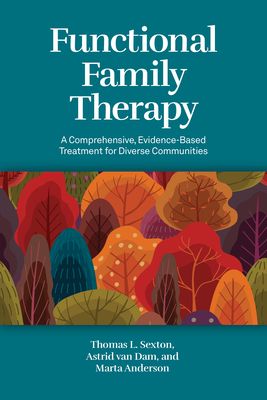
Sexton, Thomas L.
product information
description
ience, and practice of Functional Family Therapy (FFT), an evidence-based model practitioners can use to understand families, the problems they face, and how to enable families to create real and lasting change. Functional Family Therapy (FFT) has evolved from a theory taught only in universities to become a treatment model implemented in more than eight countries and ten languages. It features specialized training, certification, and systemic fidelity processes that are used worldwide. FFT has been recognized in recent years as one of the premier evidence-based family intervention models for working with adolescents with problem behaviors. Chapters describe the evolution of the theory and extensive research support for FFT, provide overviews of each stage of treatment, and offer practical guidance for using FFT in a variety of contexts including juvenile and adult justice, child welfare, foster care, and behavioral health; using FFT in community contexts, including training and supervision and measuring and integrating client feedback; and using cutting-edge technological advances to better deliver optimal outcomes for families.
member goods
No member items were found under this heading.
Return Policy
All sales are final
Shipping
No special shipping considerations available.
Shipping fees determined at checkout.







